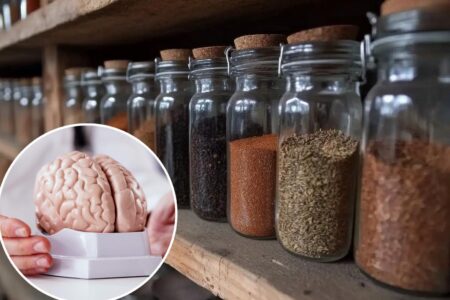Certain bitter plant compounds ‚Äî the kind found naturally in¬Ýcocoa, apples, berries and red wine¬Ý‚Äî may temporarily boost memory by activating the brain‚Äôs internal ‚Äúalarm system,‚Äù a new study suggests.
Researchers at the Shibaura Institute of Technology in Japan found that when mice consumed flavanols ‚Äî plant-based compounds known for their antioxidant properties ‚Äî their brains released a surge of noradrenaline, a chemical linked to alertness and focus.¬Ý
Within an hour, the animals performed about 30% better on a memory test compared with untreated mice, according to the findings, which were published in October in the journal Current Research in Food Science.
The researchers also found that the flavanol group exhibited greater motor activity and exploratory behavior.
‚ÄúFlavanols exhibit an astringent taste,‚Äù lead researcher Yasuyuki Fujii said in a statement. ‚ÄúWe hypothesized that this taste serves as a stimulus, transmitting signals directly to the central nervous system.‚Äù¬Ý
The team believes this reaction triggers a physiological response throughout the body through the¬Ýsympathetic nervous system,¬ÝFujii added.¬Ý
That’s the same network that governs alertness and stress responses.
The mice were given a “novel object recognition” test, in which they explored two identical objects for about 10 minutes.
Then one object was replaced with a new one. If the mice spent more time exploring the new object, it indicated they remembered the old one.
The flavanol mechanism at work appeared to be taste-based, rather than dependent on chemical absorption, the scientists said.
The mouth-puckering sensation of flavanols, which make dark chocolate and strong tea taste slightly bitter, may trigger sensory nerves that communicate directly with the brainstem, the study found.¬Ý
This triggers a small¬Ýregion of the brain¬Ýcalled the locus coeruleus, which releases noradrenaline and helps the brain retain new information.
The research helps explain why¬Ýprevious studies¬Ýin older adults have linked diets rich in flavanols to improved memory.¬Ý
Instead of acting like nutrients that protect brain cells, the compounds may stimulate the body’s alert systems, enhancing learning and focus.
‚ÄúStress responses elicited by flavanols in this study are similar to those elicited by¬Ýphysical exercise,‚Äù¬ÝFujii said. ‚ÄúThus, moderate intake of flavanols, despite their poor bioavailability, can improve the health and quality of life.‚Äù
The ‚Äúpoor bioavailability‚Äù means that only a small fraction is absorbed after people¬Ýeat foods¬Ýlike cocoa or berries. The doses given to the mice, however, were much higher than what a typical serving of dark chocolate or berries contains.¬Ý
The flavanol-rich foods may help the brain turn short-term memories into long-term ones, the researchers believe, but they warn this is far from scientifically proven.
The authors also emphasized that human testing is still needed to see whether similar short-term improvements are possible and whether repeated exposure could lead to tolerance or¬Ýstress-related downsides.
Dr. Johnson Moon, a neurologist at Providence St. Jude Medical Center in California, noted that while a standard dark chocolate bar might contain enough flavanols to boost memory, its calories, sugar and fat could outweigh the benefits.
“I do not believe we have enough data yet to recommend [that] consuming dark chocolate is a safe and effective way to improve memory,” Moon told Fox News Digital.
Nonetheless, he said the findings are of “high interest.”
“I do not believe people, including most doctors, are aware that a taste of a specific molecule or compound can rapidly trigger major changes in the brain,” he said.
Further research on ‚Äúsensory nutrition‚Äù could expand understanding of what foods and drinks can do for the mind, he added.¬Ý
“If it turns out to be an effective and safe way to temporarily boost our brain power, I may be eating a bit more dark chocolate.”
Fox News Digital reached out to the study’s authors for comment.
Read the full article here














